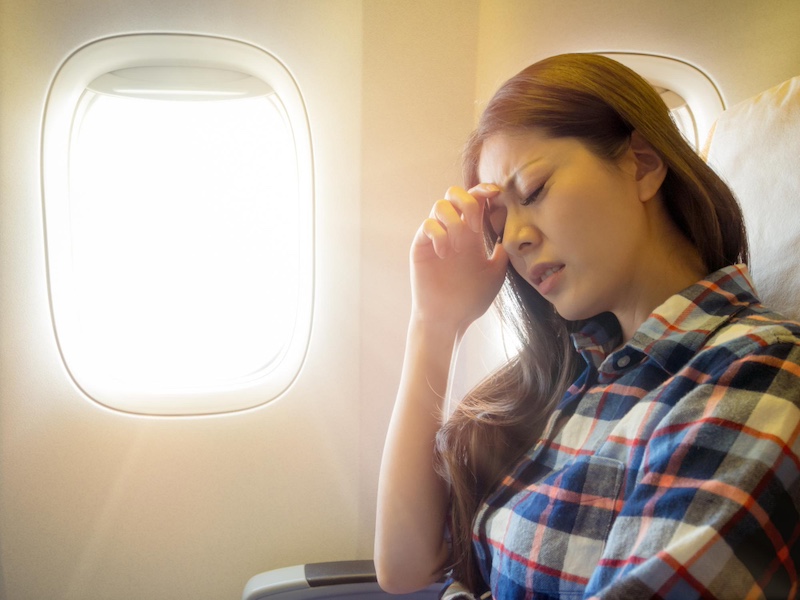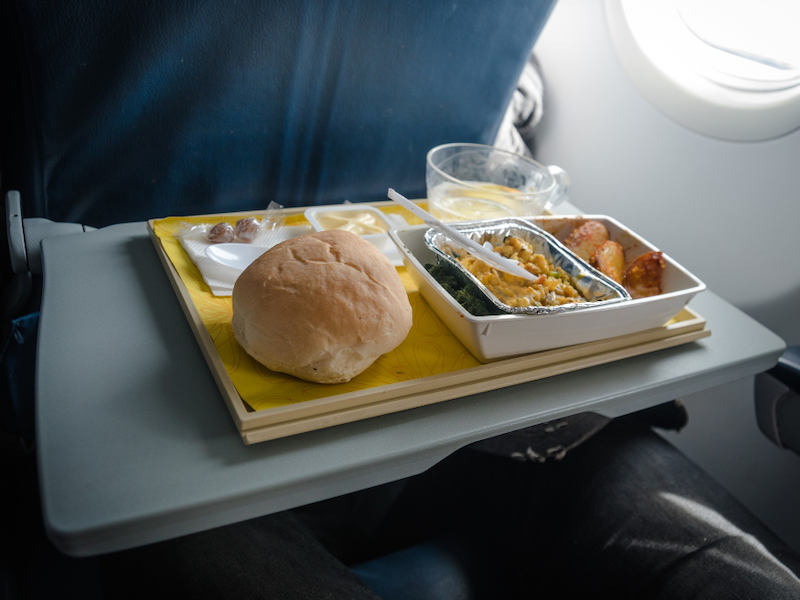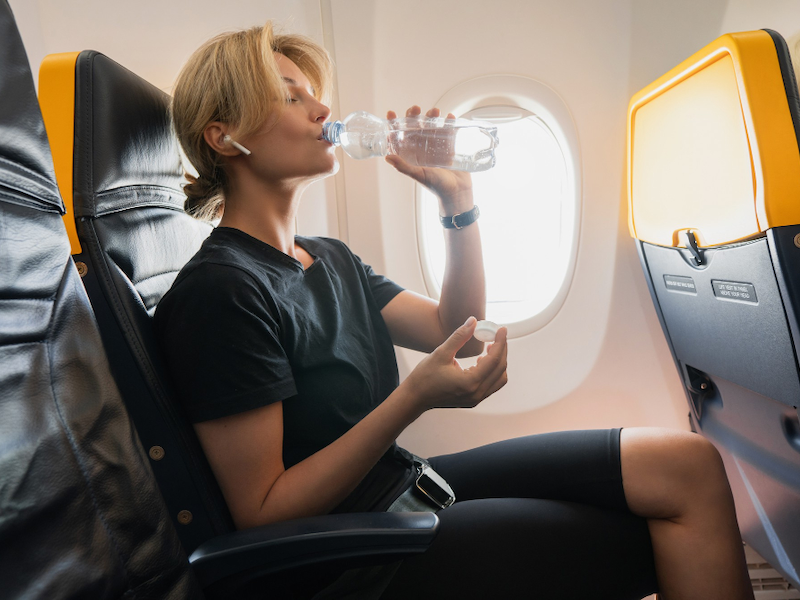
Feeling bloated on a plane can be attributed to lower cabin pressure, dehydration, and inactivity. The reduced cabin pressure can cause gas in your digestive system to expand, leading to discomfort. Dehydration from dry cabin air and prolonged sitting can exacerbate bloating.
The effects on your body include discomfort, increased pressure in the abdomen, and potential gastrointestinal distress. It can also contribute to general discomfort during the flight, impacting your overall travel experience.
Here’s a few common causes:
Cabin pressure: The cabin of a commercial aeroplane is pressurised to maintain a comfortable environment for passengers at high altitudes. However, this pressure is lower than what you would experience at sea level. This reduction in pressure can lead to a condition called “cabin bloat” for some individuals. The lower cabin pressure can cause gases in your digestive system to expand, leading to bloating and discomfort.
Dehydration: Air travel often involves long periods of sitting in a confined space, and the dry air in the cabin can lead to dehydration. When you’re dehydrated, your body may retain water, which can contribute to bloating and discomfort.
Altitude changes: The ascent and descent of an aircraft can affect your body’s internal pressure, which can, in turn, affect your digestive system. As the plane climbs to cruising altitude, the decrease in atmospheric pressure can cause gas in your intestines to expand, leading to bloating. During descent, there may be changes in pressure that affect your ears and sinuses.
Inactivity: Sitting for long hours on a plane can slow down your digestion. The lack of physical activity can make it more difficult for your body to process food and move gas through your digestive system, potentially leading to bloating.
Plane food: Some people may experience bloating due to the type of food and drinks served on planes. Plane meals can be high in sodium, which can lead to water retention and bloating. Additionally, carbonated beverages, like fizzy drinks, can contribute to gas buildup.

Dietary choices: If you consume foods that are known to cause gas or indigestion before or during your flight, you’re more likely to experience bloating. Foods like beans, broccoli, cabbage and carbonated drinks can be problematic for some individuals.
To minimise bloating while flying, consider these tips:
Stay hydrated: Drink plenty of water before and during the flight to help prevent dehydration.

Avoid gas-inducing foods: Limit consumption of foods that tend to cause gas, especially before and during your flight.
Move around: Try to stand up and walk around the cabin periodically to promote healthy digestion.
Consider over-the-counter medications: Some people find relief from over-the-counter anti-gas medications or digestive aids.
Use seat belts and compression socks: Wearing a seatbelt across your abdomen can help provide gentle pressure and reduce bloating. Compression socks can also aid circulation and reduce swelling in your legs.
Further support can be found below.








